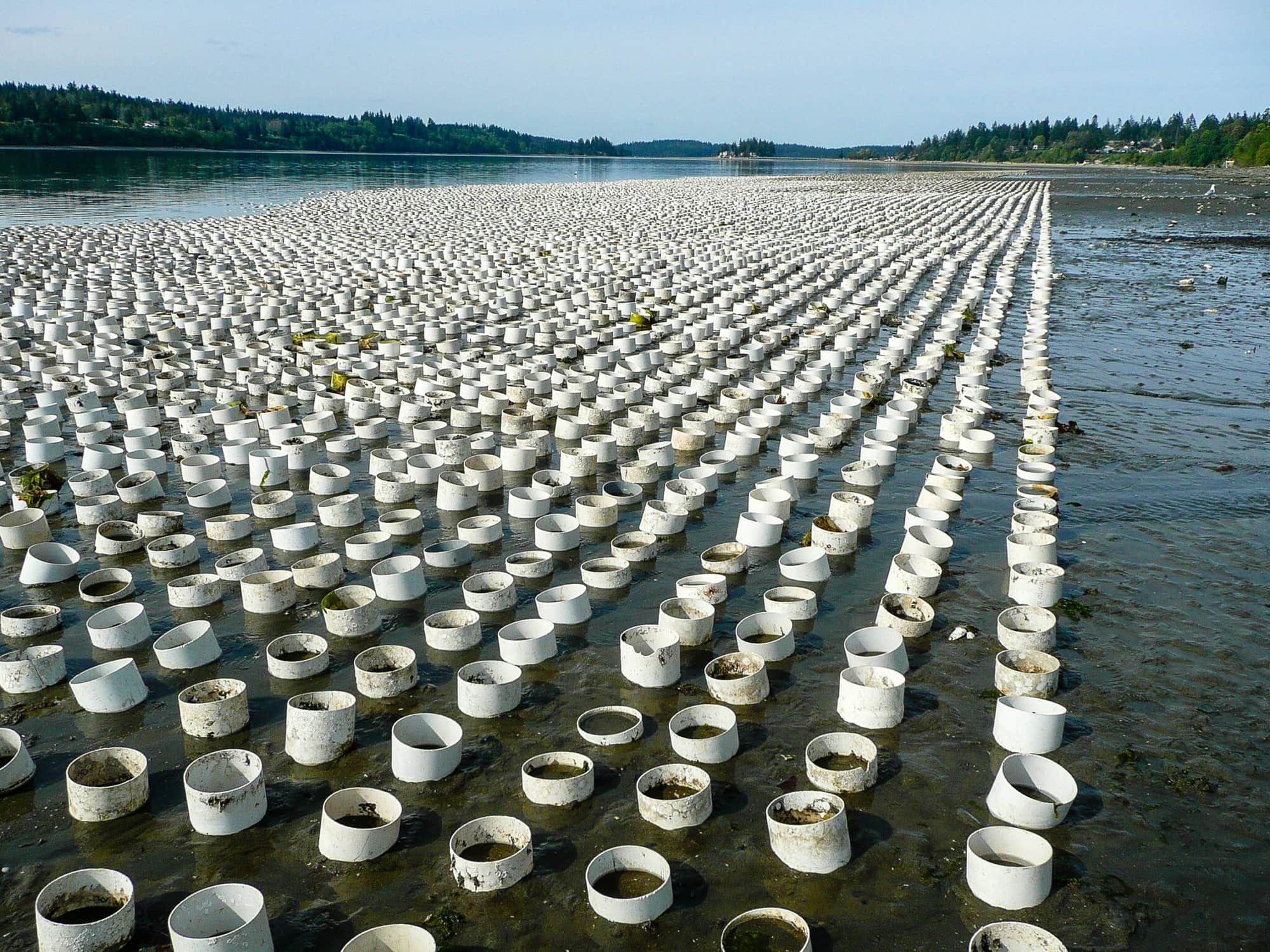
Apr 12, 2018- Protect Zangle Cove, the Coalition to Protect Puget Sound Habitat and Wild Fish Conservancy filed suit today against the Washington Department of Fish and Wildlife (“WDFW”), demanding an end to the improper exemption of industrial shellfish aquaculture projects from state standards designed to protect fish and marine habitats.
Most construction projects in or near Washington waters must receive a Hydraulic Project Approval (“HPA”), which requires that they have safeguards in place to protect fish and their habitat. WDFW has exempted commercial aquaculture from this statutory requirement for many years, meaning aquaculture projects go forward without these crucial environmental safeguards.
The lawsuit filed in Thurston County Superior Court contends this exemption has no legal basis and asks the court to direct WDFW to apply the HPA law consistently to shellfish aquaculture projects. The suit also asks the court to halt development of a geoduck farm planned for Zangle Cove, a near pristine estuary in South Puget Sound, until it receives an HPA permit.
“With threatened Southern Resident killer whales and endangered native salmon at extreme risk, our state agencies have failed to implement the environmental protections that are critical to the broad scale ecological recovery of Puget Sound,” says Patrick Townsend, president of Protect Zangle Cove. “The action we are taking today is one important step toward restoring sanity to the recovery process. We must protect the tidelands from further loss of ecological function or we will see the loss of iconic species so important to the people of Washington State.”
Laura Hendricks, director of the Coalition To Protect Puget Sound Habitat, emphasizes that the lawsuit only asks the state to apply the law consistently.
“There is a double standard that exempts commercial shellfish aquaculture from the state HPA permitting system, even though these operations pose a severe threat to our fragile coastal habitats,” Hendricks says. “A private citizen installing a small dock needs to get an HPA permit, but a commercial shellfish facility would not need an HPA permit before constructing a facility that disrupts miles of pristine shoreline, destroys natural vegetation and aquatic life, and inserts tons of harmful plastic tubing, netting, and rebar into the tidelands.”
Commercial shellfish aquaculture is in the midst of dramatic expansion in Washington. These factory-farm like facilities already take up as many as 50,000 shoreline acres, or as much as one-quarter of all Washington tidelands. Significant expansion is planned in the immediate future, focusing largely on geoducks raised to sell in the Asian luxury market.
A single-acre geoduck operation usually includes around 44,000 PVC tubes, four- or six-inches in diameter, and approximately ten inches long. This amounts to approximately seven miles of PVC tubing per acre, weighing between 11 and 23 tons. Plastic nets are typically installed over the entire geoduck bed to keep out native wildlife that would normally feed and shelter there.
Kurt Beardslee, co-founder and Executive Director of the Wild Fish Conservancy, says: “There’s no way around it, it’s a scientific fact: the industrial shellfish aquaculture industry routinely damages vast amounts of habitat critical to federally protected species, including wild salmon and steelhead, with little or no agency oversight.”
###
Protect Zangle Cove, the Coalition to Protect Puget Sound Habitat and Wild Fish Conservancy are represented in the litigation by the law firm of Lane Powell P.C.
CONTACT:
Patrick Townsend (360) 359-4406
Laura Hendricks (253) 509-4987
Kurt Beardslee (425) 788-0125
Join our mailing list to recieve important updates on our work, the latest wild fish news, & opportunities to take action to support wild fish.
This site is protected by reCAPTCHA and the Google Privacy Policy and Terms of Service apply.
Wild Fish Conservancy is recognized as a 501(c)3 non-profit by the IRS